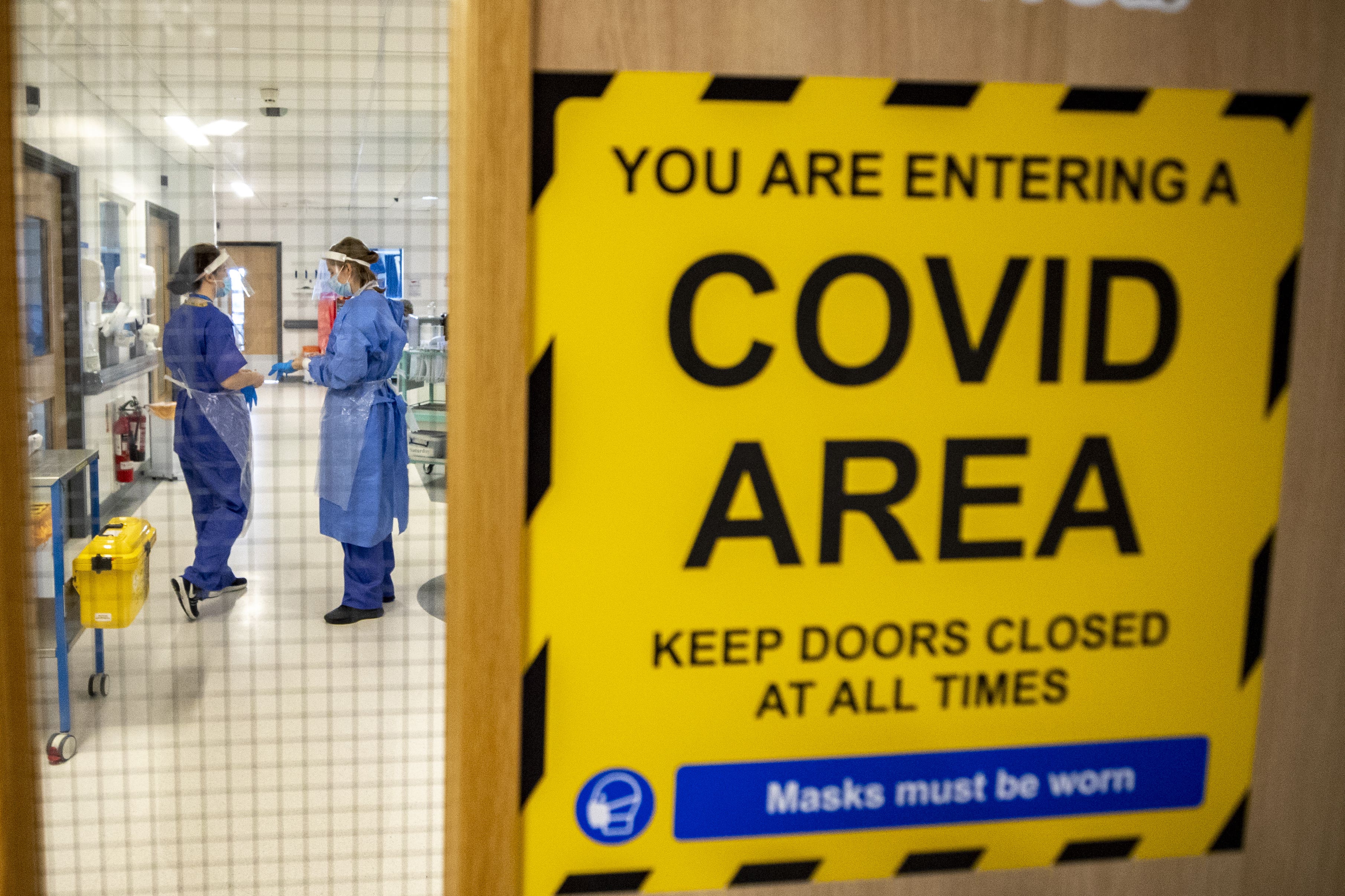Online rehabilitation sessions ‘improve life quality for people with long Covid’
The sessions resulted in improvements in fatigue, pain and depression compared with usual care, researchers found.

Group online rehabilitation including gentle exercise and mental health support can improve quality of life for adults with long Covid, a new study suggests.
The eight-week sessions resulted in improvements in fatigue, pain and depression compared with usual care, researchers found.
The experts say this accessible, resource-efficient programme can be delivered at scale and could help doctors treating the complex condition.
Long Covid is defined as symptoms lasting or new symptoms appearing more than four weeks after initial infection.
This programme has the potential to reduce the chronic burden of Covid-19
Data suggests that as of March 2023, 1.9 million people in the UK reported Covid-19 symptoms persisting beyond 12 weeks, 1.3 million beyond one year, and more than 750,000 beyond two years.
Symptoms include extreme tiredness (fatigue), shortness of breath, memory loss and muscle aches, all of which can affect quality of life, social interaction and economic productivity.
The Rehabilitation exercise and psychological support after Covid-19 infection (Regain) programme consists of weekly live, online, home-based, supervised, group exercise and psychological support sessions.
The exercises involve movements such as steps and squats without equipment, focusing on strength and balance.
For some people, the exercises were chair-based.
William, a man in his 50s, who had nearly died from severe coronavirus with multiple respiratory, pulmonary, muscular and psychological problems caused by the virus, took part in the trial.
He said: “I literally could not get out of bed after being brought home from intensive care, and spent a year just learning, with great difficulty, to once again walk the short distance to the end of my street.
“But after a year, I was fortunate enough to take part in the Regain programme, which provided me with a solid base and platform, from which to, firstly, address and, secondly, understand my physical and psychological problems.”
“As well as the tailored exercise programme, the Regain programme gave me the practical tools I needed, to continue my rehabilitation in a measured way at my own pace.”
Gordon McGregor, professor of clinical exercise physiology and rehabilitation, at the University of Warwick, who led the clinical trial, said: “There was no precedent for how best to treat people with long Covid.
“We knew that centre-based NHS rehabilitation services did not have the capacity to support the numbers of people recovering from Covid-19, so alternative long-term strategies were needed.
“We are very pleased that the Regain intervention was well tolerated and improved quality of life.
“This programme has the potential to reduce the chronic burden of Covid-19.
Supervised online rehabilitation programmes such as Regain may help widen access to rehabilitation services beyond just long Covid
“Apart from the direct benefits for those concerned, improving the general health of people with long Covid can reduce demand on health and social care more widely and improve economic productivity.”
Martin Underwood, professor of clinical trials, who was a senior investigator on the trial said: “Supervised online rehabilitation programmes such as Regain may help widen access to rehabilitation services beyond just long Covid.”
The trial involved 585 adults who had been discharged from hospital at least three months earlier after a Covid-19 infection and who reported substantial lasting effects that they attributed to the virus.
Some 287 people received the usual care (a single online session of advice and support with a trained practitioner) and 298 were involved in the Regain sessions (weekly home-based, live, supervised, group exercise and psychological support sessions delivered online over eight weeks).
According to the findings, at three months, 17% of the Regain group reported that their overall health was “much better now” compared with 8% in the usual care group.
The experts said the conversations were ongoing about rolling out the programme more widely across the NHS, but that this was a decision for policy makers.
Prof McGregor added that he hoped the findings would go some way towards dispelling the myth that long Covid is a mental health condition.
Asked what advice he would have for people trying to do their own exercises at home, he explained that the trial approach had been very considered, and people trying to undertake activities on their own may experience problems.
Prof McGregor said people with chronic fatigue as a part of their long Covid should “very gently increase their activities” over a period of time so that they do not exacerbate symptoms of fatigue.
The research was funded by the National Institute for Health Research (NIHR) Covid-19 Recovery and Learning programme.
Published in the British Medical Journal (BMJ), the study was conducted by researchers at University Hospitals Coventry and Warwickshire NHS Trust and the University of Warwick.
Bookmark popover
Removed from bookmarks